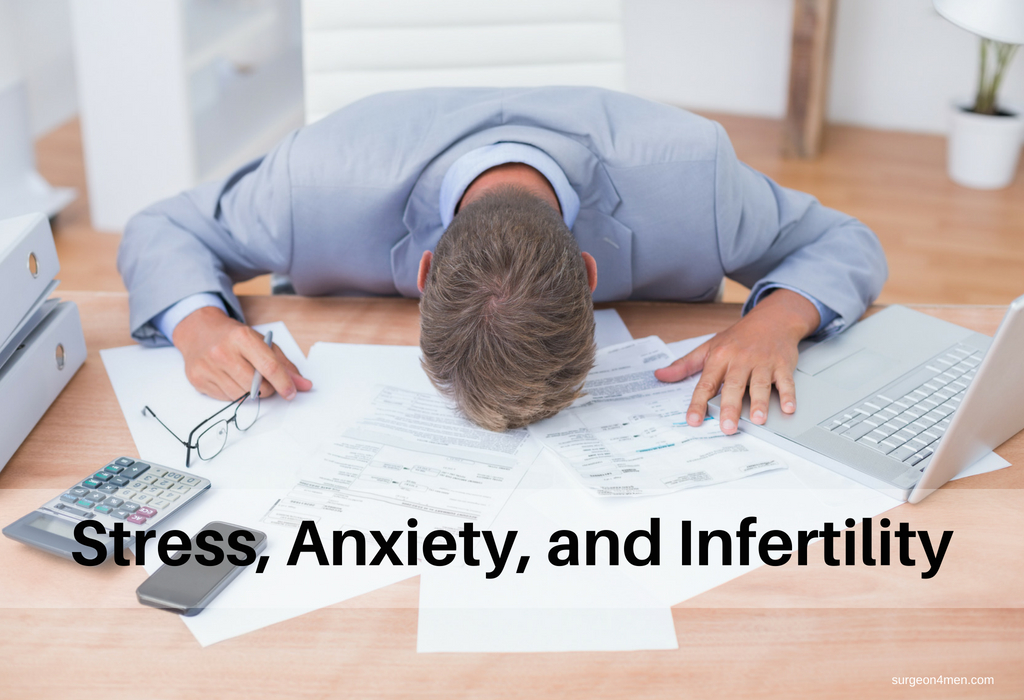Stress, Anxiety, and Infertility
Couples who are unable to conceive after having unprotected sex for almost a year are considered as infertile. Infertility can be a difficult and stressful situation which can adversely impact social and marital life of many people. Stress, Anxiety, and infertility are things to look out for.
Various research studies indicate that stress and depression not only affect couple’s performance in the bedroom but can also affect their fertility.
What is the impact of stress on fertility?
Stress is harmful for your body. It affects your social life, your weight, disturb your sleep patterns and also cause hair loss. It is noteworthy that anxiety and stress may impact the chances of conception but cannot cause permanent infertility. Several clinical studies suggested that long standing and poorly managed stress can reduced the chances of getting pregnant. For example, according to a new study, researchers discovered that up to 30 percent of infertility problems are due to stress. Another survey concluded that there is a greater chance of getting pregnant for couples who are happy and relaxed as compared to those who are stressed.
According to a recent survey, stress results in the production of catabolic hormones such as cortisol, adrenaline and catechol. These hormones restrict the production of gonadoliberin, (a hormone released by hypothalamus) that helps in releasing sex hormone i.e. LH and FSH from pituitary gland. It is noteworthy that excessive serum levels of these hormones can also impact ovulation in women, sperm production in men and lower libido in both men and women. Women who are under extreme stress may ovulate irregularly which makes it difficult for them to conceive.
Besides reducing ovulation, it can also impact fertilization and implantation in the uterus. According to a survey conducted by University of California, IVF success rates are lesser for women who reportedly had a stressful lifestyle. Another study by Israeli researchers suggests that by reducing the stress levels in women, chances of IVF success rates can be increased several folds.
Infertility is one of the most common reasons of stress:
Stress and infertility has a cause-effect relationship. The couples who fails to conceive for a certain period of time despite trying are very likely to develop stress, depression and anxiety. In addition, the fertility tests and treatments are very stressful and hectic as well. Even if women are treated, their high stress levels still make it difficult for them to conceive.
How can we reduce stress associated with infertility?
There are many stress reduction techniques that help couples in coping up with their stress levels. As discussed earlier relaxation and happiness increases the chances of conception naturally, and therefore you must find ways to relax yourself to reduce stress.
- Keep away from over thinking as it will further depress you; thereby decreasing your fertility.
- Focus on positive things in life and avoid discussing negative topics like infertility. Use healthy relaxation techniques to divert your mind like going out for movies or indulge in other healthy activities with your partner such as dinner dates, making love and having fun.
- Making love only for the purpose of having the baby make it even more stressful. It is therefore recommended to stay relaxed and enjoy the moment.
- There are many relaxation techniques like yoga, exercise, mediating and acupuncture. These techniques are very helpful to reduce stress and anxiety.
- Consult with the person who is good in counseling.
- Keep yourself busy to avoid negative thinking.
Conclusion:
You often hear people say when you stop trying for the baby, it will happen. Obviously, it is not that easy for couples who are dealing with fertility issues but it is definitely helpful to look for support group and stress management techniques. It does not mean you should stop trying for a baby or stop having sex, but it is more important to focus on your partner and enjoy your relationship with your partner.

